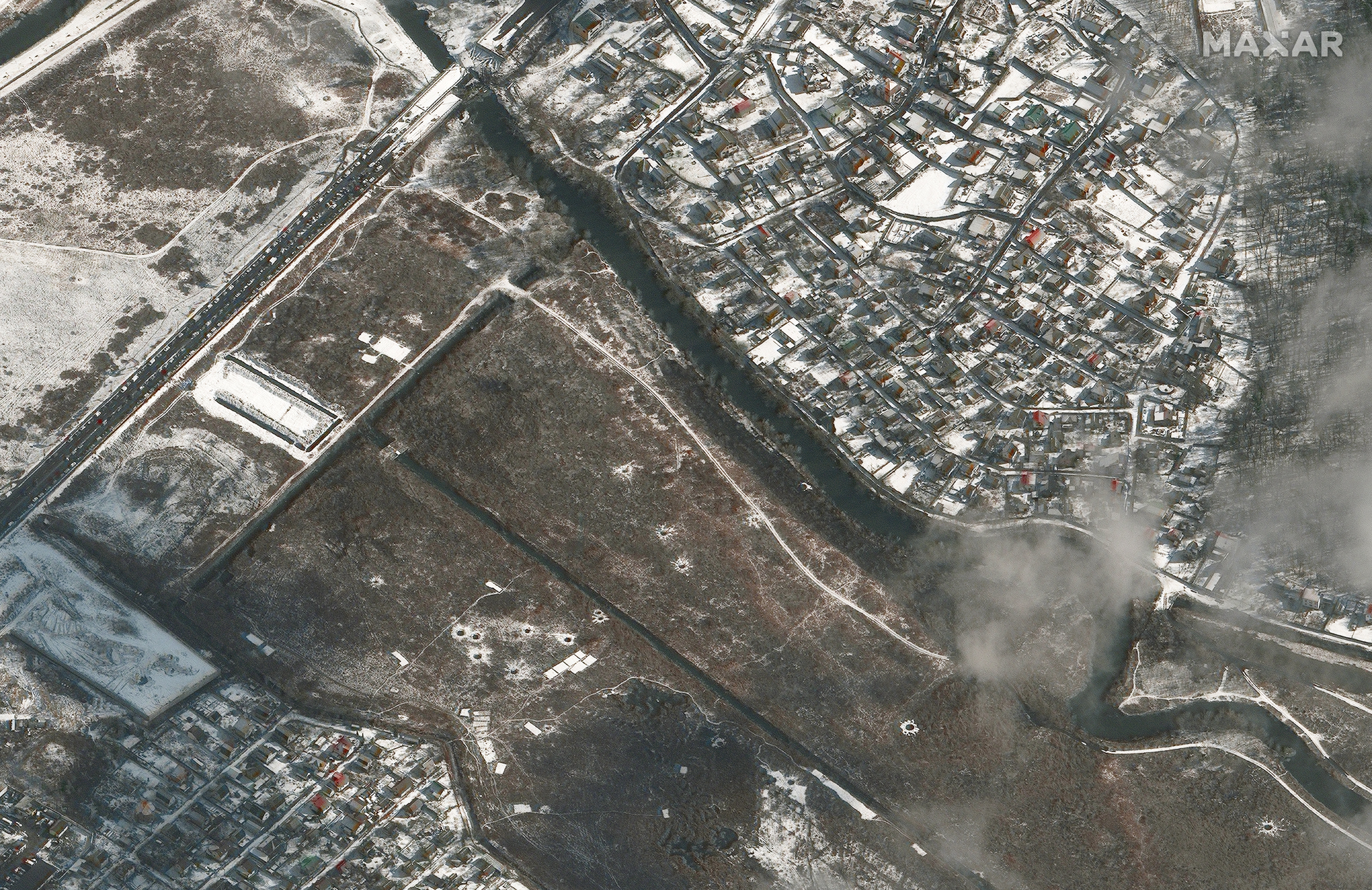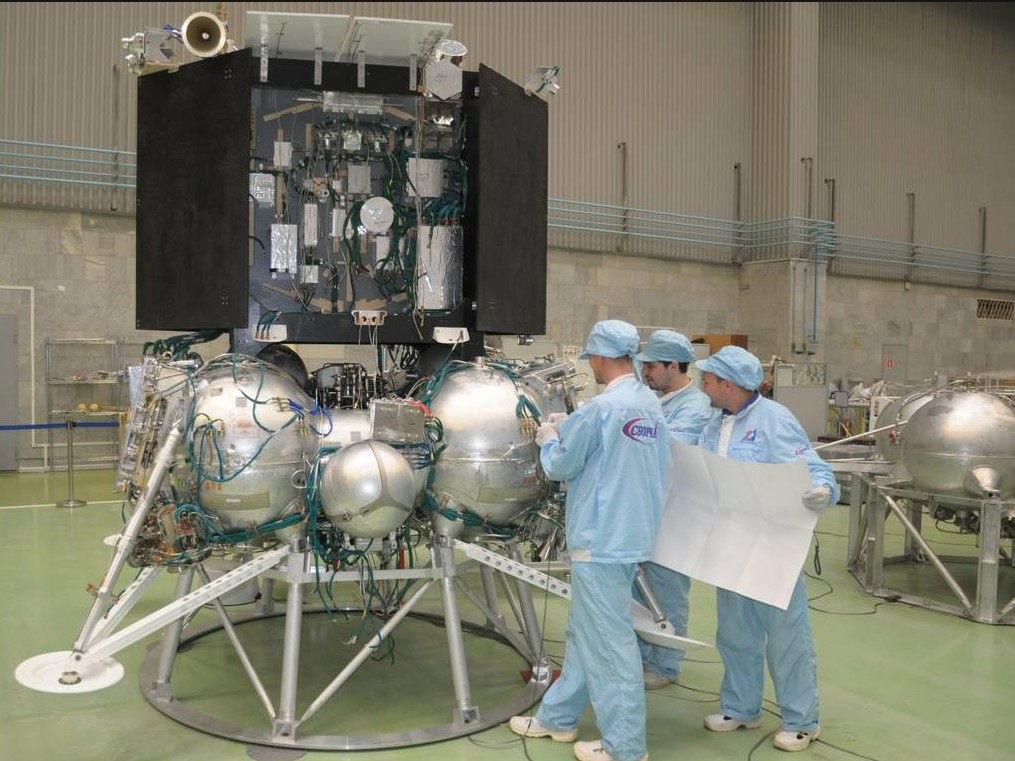
Russian invasion of Ukraine: How it's affecting Europe's space plans
Europe is assessing the situation and its options going forward.

The European Space Agency (ESA) Council will meet on Wednesday and Thursday (March 16 and March 17) in Paris for its 306th session. On the agenda: "Implications of the current geopolitical situation on ESA's activities."
That situation is the ongoing Russian invasion of Ukraine, which could end up having a significant impact on spaceflight and exploration, given Russia's prominence and partnerships in those fields.
"We deplore the human casualties and tragic consequences of the war in Ukraine," ESA officials said in a statement on Feb. 28, four days after the invasion began. "We are giving absolute priority to taking proper decisions, not only for the sake of our workforce involved in the programs, but in full respect of our European values, which have always fundamentally shaped our approach to international cooperation."
Related: Russia's invasion of Ukraine as seen in satellite photos
Furthermore, ESA explained that it was fully implementing sanctions imposed on Russia by the organization's member states.
ESA has 22 member states. They are: Austria, Belgium, the Czech Republic, Denmark, Estonia, Finland, France, Germany, Greece, Hungary, Ireland, Italy, Luxembourg, the Netherlands, Norway, Poland, Portugal, Romania, Spain, Sweden, Switzerland and the United Kingdom. Slovenia, Latvia and Lithuania are "associate members."
Major question mark
"We are assessing the consequences on each of our ongoing programs conducted in cooperation with the Russian state space agency, Roscosmos" as well as with NASA on the International Space Station, the Feb. 28 statement added.
Breaking space news, the latest updates on rocket launches, skywatching events and more!
ESA officials also noted that Roscosmos had announced that it's halting launches of Russian-built Soyuz rockets from Europe's Spaceport in Kourou, French Guiana.
"We will consequently assess for each European institutional payload under our responsibility the appropriate launch service based notably on launch systems currently in operation and the upcoming Vega-C and Ariane-6 launchers," ESA officials said in the Feb. 28 statement, referring to new European rockets that are expected to debut soon.
Another major question mark involves the joint ESA/Roscosmos ExoMars project, which had aimed to launch a life-hunting Mars rover atop a Russian Proton rocket from Baikonur Cosmodrome in Kazakhstan this fall. Given the sanctions and the wider context, however, ESA stated that a 2022 launch for the rover is "very unlikely."
Launch windows for Mars missions come around just once every 26 months, so missing the next window would push the ExoMars rover liftoff back to at least late 2024.
And other programmatic shoes may drop as well.
Joint experiments
Inside Outer Space reached out to Bernard Foing, director of the International Lunar Exploration Working Group. He is a retired ESA project scientist for SMART-1 — the first European mission to the moon, which operated from 2003 to 2006 — and is vice-chair of the Committee on Space Research's Planetary Exploration Panel.
"As a world citizen, I am deeply troubled by the Russian/Ukraine conflict, with its casualties, losses and threats for all," Foing said.
"I am also personally affected as I have Ukrainian friends and colleagues from joint collaborations that involved Ukrainian, European and Russian researchers," Foing said. "We had vibrant memories of collaborations, and visits to Kiev (also spelled Kyiv) observatory, Evpatoria, Yalta. We even had joint experiments, including the first growth of flowers ("moon marigolds") from lunar soil conducted with [the Russian] Academy of Sciences in 2005."
ESA deplores the consequences of the war in Ukraine, Foing said. The agency's decisions take into account not only ESA's workforce but European values, he added.

Analyzing options
ESA is analyzing options for the way forward with ExoMars and other programs, Foing said.
"The war has already affected other projects," Foing said. "The withdrawal of Russian Soyuz rocket[s] from Kourou is affecting the launch of [Europe's] Galileo navigation satellites. However, the EU commission indicated that a solution will be found in due time to guarantee autonomous access to space for their assets."
ESA has also been working with Russia on that country's series of Luna missions. But "one cannot assess yet how the current conflict would affect the upcoming lunar polar lander missions Luna 25, due for launch in July, and Luna 27 planned in 2025 with ESA contributions of a drill and instruments," Foing said.
Foing also said that there are possible consequences on the operations of the International Space Station, a multinational enterprise that has been a unique platform for peaceful collaboration, technology, science, education and public outreach for more than two decades.
Related: What does the Ukraine invasion mean for US-Russian partnership in space?
Peace bridge
"Having worked as a space scientist and diplomat at ESA for more than 30 years, I believe we should not waste the efforts of scientists, engineers, technicians, taxpayers' money and public support from Europe, Russia and all countries involved in peaceful space science and exploration joint projects," Foing said.
Rather, Foing continued, we should use space science as a "peace bridge" between countries with dialogue even in times of geopolitical conflict, as the joint U.S.-Soviet Apollo-Soyuz Test Project did in 1975.
Space science collaboration generates knowledge and advanced technologies, inspiring the public, especially the younger generation, Foing said. Cooperation in the final frontier also helps develop "creative minds for the benefits of humanity and for protecting our Earth," he added.
Foing has served as president of the Space Renaissance Initiative since July 2021. Earlier this month, the nonprofit organization released a statement called "Make Space, Not War," that discusses the Russian invasion of Ukraine. You can read it here.
Leonard David is author of "Moon Rush: The New Space Race" (National Geographic, 2019). A longtime writer for Space.com, David has been reporting on the space industry for more than five decades. Follow us on Twitter @Spacedotcom or on Facebook.

Leonard David is an award-winning space journalist who has been reporting on space activities for more than 50 years. Currently writing as Space.com's Space Insider Columnist among his other projects, Leonard has authored numerous books on space exploration, Mars missions and more, with his latest being "Moon Rush: The New Space Race" published in 2019 by National Geographic. He also wrote "Mars: Our Future on the Red Planet" released in 2016 by National Geographic. Leonard has served as a correspondent for SpaceNews, Scientific American and Aerospace America for the AIAA. He has received many awards, including the first Ordway Award for Sustained Excellence in Spaceflight History in 2015 at the AAS Wernher von Braun Memorial Symposium. You can find out Leonard's latest project at his website and on Twitter.
